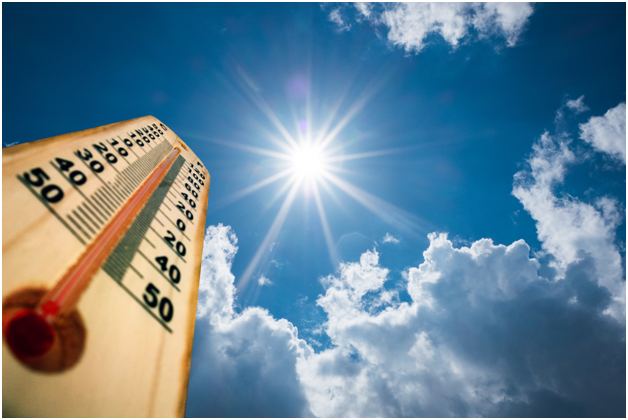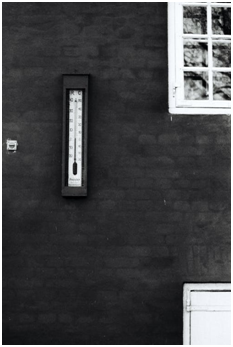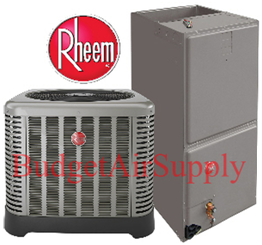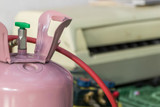Is a Rheem Heat Pump Right for You?

In this article we’re going to take a close look at a model of a Rheem heat pump to give you some insight into their features to help you determine if one is adequate or appropriate for the setting of your home. First, however, we’re going to take a look at how they work as well as some general advantages and disadvantages of these types of systems to give you some background information to help educate and guide your decision.
Remember, this is a cursory introduction rather than a comprehensive guide, and you should still make it a point to work with an HVAC professional to conduct an energy audit of your home to determine its needs in heating and cooling. A heat pump is only one type of a system, oftentimes only an accessory in that system, and there are many other types of equipment that can be used with them to make them more effective or more capable. You should work with a professional to determine the fine points of your situation, and if you need any help you can always call our team for details at 855-473-6484.
How a Heat Pump Works
Before you can even scratch the surface of whether or not a heat pump is a good fit for your home, you need to have a fine understanding of how they work, which is somewhat different from many other HVAC units with which you might be familiar.
Consider a furnace, for example, which heats air by burning fuel such as natural gas and then uses a blower motor, or sometimes, depending on the volume of air, an air handler to distribute the heat. This is a simplified explanation of how a furnace works, but it will suffice in the scope of this article; and, for clarity, keep in mind that a furnace is only good for providing heat to a location. A furnace cannot provide cooling.
This is one of the main things to understand about a heat pump out of the gate, being that heat pumps, despite the name, are not only an option for heating but for cooling as well. This is due to the basis of their method of operation.
There are two basic types of heat pumps that you will come across if you do further research, and they are ground source and air source heat pumps. Both of these types work by the same principle of operation, being that they consolidate heat in one location and transfer it to another location. For the purpose of this article, we will focus on the operation of air source heat pumps and how they operate.
Taking a step back, the basic principle by which air source heat pumps work is that they consolidate and redistribute heat, as mentioned. In the winter, when it is cold, there is still an appreciable amount of energy in the air. When it is cold, the heat pump takes the heat out of the outside air and then circulates it through the inside of your home. When it is hot inside, the heat pump removes the energy from the air inside your home and vents it to the outside.
To keep things simple in expressing how a heat pump works, consider this. In the summer, when it is hot outside, a heat pump uses refrigerant along with an indoor coil to absorb the heat that is in the air; the cooler air is then released and recirculated back into your home.
As the refrigerant absorbs heat from inside your home, it expands and is converted into a gas. This gas is compressed, which heats it up (the heat originally came from the air inside your home) and it is sent to the coil in the outdoor unit of the heat pump. Once the heated refrigerant reaches the outdoor units coil, a blower will typically circulate the outdoor air over the coils, which speeds up the process by which the heat is released back into the outside environment. As the refrigerant loses heat, it will condense back into a liquid form, whereby it can be circulated back to the indoor coils to begin the process over again.
Heat pumps have a reversal valve, which enables them to perform the process above but in the reverse direction, meaning that they can absorb heat from the environment and then bring it into your home to provide heat. As you can see, heat pumps do not produce heat as a furnace does, but work rather similarly to air conditioning systems. The main difference is that a heat pump system can be operated in both directions, either to bring heat into your home or to remove heat from your home.
Advantages of Heat Pumps

Heat pumps offer a number of distinct advantages and disadvantages, meaning that in order to determine if one will make a good fit for your home, you will still need to work with an HVAC professional. However, keep some of these factors in mind when you are shopping around.
Heat pumps provide a high measure of energy efficiency, and there is a good likelihood that a heat pump can help you realize energy savings. Specifically, heat pumps tend to be able to offer improved performance over a furnace, which is going to draw a lot of energy by comparison. With that in mind, they are relatively similar in operation to air conditioners, so much of the increase you will see in efficiency will come in the summer months.
Then of course, there is the fact that heat pumps are practical for use throughout all seasons. If you go with a traditional system, you will need a furnace to keep you warm in the winter and an air conditioning system to keep you cool in the summer. For a number of reasons, you are likely to see heat pumps paired with air conditioners or furnaces, but we will explain that more fully in the following section.
Finally, by contrast to other systems, a heat pump is likely to require less maintenance and will probably be projected to have a longer useful lifespan than air conditioners or furnaces. It is hard to put a number on this, but you can expect that most heat pumps will likely significantly outlast alternatives; for more details on this, give our team a call at the number listed above.
Disadvantages of Heat Pumps
As you can see, there are a number of benefits that come along with working a heat pump into the design of your home, but they are not without their drawbacks. You must also consider the following facts when you are questioning whether or not it will make sense to set your home up with a heat pump.
If there is one thing that discourages some people from investing in a heat pump, it is probably the fact that they can be extremely expensive up front. Even with the seductive promise of long term energy savings, it can be hard to justify the steep costs that most units command. The truth is that most heat pumps are extremely expensive, and even though ground source heat pumps tend to be the most expensive of the several options, air source heat pumps themselves can still be very expensive.
Something else to consider is that although heat pumps represent a high degree of energy efficiency, they are not as effective overall as air conditioning systems or as furnaces. That is the reason that in extremely hot climates you are likely to see a system paired with an additional air conditioner, and in cold climates you will probably see one paired with a furnace. Heat pumps tend to lag in performance more when it is extremely cold, and extreme cold can even damage the system. Therefore, heat pumps are not ideal for extreme climates, and may be more suitable in more temperate areas where a lesser degree of heating and cooling are required for comfort.
One more thing to keep in mind is that heat pumps can be difficult to install and can require a fair amount of work to be done to your home in order to make them fit into the footprint. That is something that an HVAC specialist would have to work out, but it is a concern for some people.
A Close Look at a Rheem Heat Pump

Let it be said, for the sake of argument, that after consultation with an HVAC specialist you determined that your home and climate would make a good match for a heat pump, specifically a Rheem heat pump. This is the kind of high-quality design and construction that Rheem offers, and you can expect from something carrying that name.
Check out our Rheem/RUUD “Classic” 5 Ton 15 SEER Heat Pump Split System, which, like everything from Rheem Manufacturing Company, is built to deliver long lasting, reliable performance and durability.
The outdoor condenser that comes with this unit is capable of delivering up to 58,000 BTUs of cooling power, which is also a correlative statement of its ability to provide heating to your home. The entire unit is built for high efficiency and longevity, as well.
In terms of efficiency, this unit comes with improved tubing design and enhanced defrosting capabilities, as well as expanded valve space and an optimized fan orifice for improved flow. It also comes with an improved scroll compressor. All of these features not only improve performance but some of them also help to diminish vibration and keep noise to a minimum.
In terms of durability, this model is loaded down with even more features to ensure reliability and ease of maintenance. It has a new composite base pan, which helps to eliminate the number of fasteners needed, and this unit comes with 35% fasteners overall, which can keep a lid on condensation and corrosion as well. The screws that are used are rust resistant, and the heavy gauge cabinet comes with a powder coat finish to buck the elements and keep corrosion at bay.
Of course, we offer other examples of Rheem heat pumps here at Budget Air Supply, but this is a quick snapshot of the type of quality you can expect from us when you shop with us in order to keep your home comfortable throughout the seasons.
Get It Here!
This brings up another point that we have to make while we have the chance, which is that you should shop with us whether you’re looking for a Rheem heat pump or not, naturally.
First of all, we offer our Price Match Guarantee on all models that you will find for sale in our online store, which means you will get the best available price, bar none. Our prices are low to begin with, but rest assured that when you shop with us you’ll be covered and have access to the best possible prices.
If that weren’t enough reason - and it should be - there is the fact that we also offer free shipping on all orders. Everyone knows how notorious heavy, bulky items can be for commanding high shipping costs, but we ship everything free from Budget Air Supply. We own part of our logistics chain and that gives us a direct hand in the affair.
At the same time, our shipping is not only free, but very fast. See above where we mentioned that we own some of our logistics chain, including some warehouses - that means we can control lead times, to a degree, and as a result our shipping is significantly faster than most competition.
So we can offer you low prices, free shipping and fast shipping, but the goodness doesn’t end there. We also maintain an installation network so we can partner with you to ensure that your new model gets installed the way it should be; and, for what it’s worth, our customer service is second to none. If you are looking for some help figuring out how to update your current HVAC infrastructure, start here first. Give us a call at the number listed above, which again, is 855-473-6484, and we’d be glad to investigate some options for you.
Recent Posts
-
The GPGM32406041, an Efficient 2-Ton Gas Package Unit
As a homeowner, you want to ensure that you're comfortable throughout the year. However, you also wa …21st Apr 2024 -
Can I Recharge the R410 Refrigerant in My HVAC System?
Keeping your home cool and comfortable during the hot summer months relies heavily on your HVAC syst …14th Apr 2024 -
A Comprehensive Guide to Understanding Straight Cool AC Condensers
Straight-cool AC condensers are vital in ensuring optimal indoor comfort, especially in regions with …7th Apr 2024



